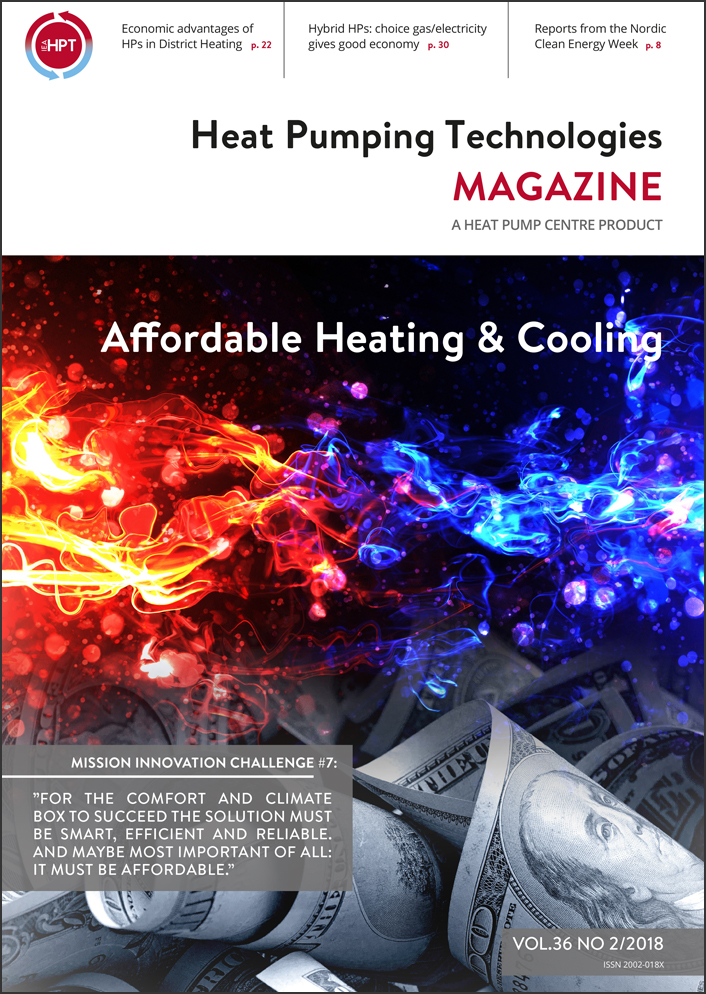|
|
 |
 |
The development of heat pumping technologies shows us a path towards decreased dependency on fossil fuels. But development often means increased costs; costs that the market is not necessarily willing to pay. In this issue of the HPT Magazine it is shown that these developed heat pumping technologies can be affordable, both in the short and the long run.
Below is a list of articles included in the Magazine. The articles in bold can also be found further down, in versions shortened by the HPC.
- Heat Pump Conference in Jeju 2020
- The EU Negotiators Finally Succeed in the Energy Talks on the Energy Efficiency Directive and the
Energy Union Governance Regulation - The Energy World Gathered in the Nordic Countries: Nordic Clean Energy Week
- Annexes in HPT TCP: 49, 50, 52
- Market Report: The French (hi)story of Heat Pumps
- Thermodynamic Performance and Economic Feasibility of Booster Heat Pumps in Low-Temperature District Heating
- District Heating and Cooling Networks Based on Decentralized Heat Pumps: Energy Efficiency and Reversibility at Affordable Costs
- Hybrid Heat Pumps Minimize Emissions and Overall Costs
Read the full HPT Magazine here.
Don't forget to visit our website for news, the latest updates and more information.
|
|
|
|
|
|
|
|